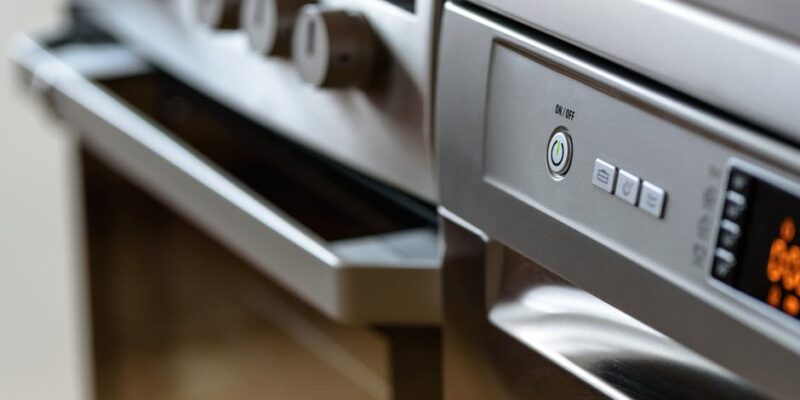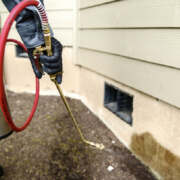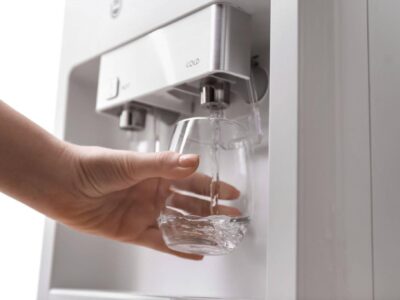Dishwashers can be a lifesaver when you’re busy or have a lot of dishes to wash. However, when they start leaking, it can be a major inconvenience. Here are some of the most common reasons why dishwashers leak from the bottom, and what you can do to fix the problem:
- Defective gasket: The gasket is the rubber seal that goes around the door of the dishwasher. If it’s damaged or worn, it can allow water to leak out.
- Damaged water pump system: The water pump is responsible for circulating water throughout the dishwasher. If it’s damaged, it can cause water to leak out.
- Faulty water inlet valve: The water inlet valve is responsible for supplying water to the dishwasher. If it’s faulty, it can cause water to leak out.
- Clogged filter: The filter is located at the bottom of the dishwasher and helps to catch food particles and other debris. If it’s clogged, it can prevent water from draining properly, which can lead to a leak.
- Damaged float switch: The float switch is a safety device that turns off the water supply to the dishwasher if the water level gets too high. If it’s damaged, it can cause water to leak out.
If you’re having trouble with a leaky dishwasher or small appliance repair, it’s important to troubleshoot the problem to find the source of the leak.
Once you’ve identified the problem, you can take steps to fix it. In some cases, you may be able to fix the leak yourself. However, if you’re not comfortable doing so, you should call a qualified technician from ABV Appliance repair in Boston, MA.
Reason 1: Defective Gasket
The gasket is the rubber seal that goes around the door of the dishwasher. It creates a watertight seal when the door is shut, preventing water from leaking out. However, if the gasket is damaged, dirty, or loose, it can no longer seal properly, leading to a leak.
To check the gasket, open the dishwasher door and look for any of the following:
- Cracks or holes
- Dirt or debris buildup
- Looseness or gaps
If you see any of these problems, you will need to replace the gasket. To do this, follow these steps:
- Turn off the dishwasher and unplug it from the power outlet.
- Remove the screws that hold the gasket in place.
- Carefully remove the old gasket.
- Clean the area where the gasket was installed.
- Install the new gasket and secure it with the screws.
- Turn on the dishwasher and test it to make sure the leak is fixed.
If there is no damage to the gasket, you can try cleaning it to see if that fixes the leak. To clean the gasket, use a mild detergent and water. Be sure to dry the gasket thoroughly before reinstalling it.
If cleaning the gasket does not fix the leak, you may need to replace the water inlet valve or the float switch. These are the components that control the flow of water into the dishwasher. If they are damaged, they can cause water to leak out.
If you are not comfortable replacing the gasket or other dishwasher components, you can call a qualified Boston appliance repair technician to do it for you.
Reason 2: Damaged Water Pump System
The water pump system in a dishwasher is responsible for delivering water to the wash cycle and emptying water out of the drain. If this system is damaged, it can cause water to leak out of the dishwasher.
If you notice any of these signs, you should check the water pump system for damage. To do this, you will need to:
- Turn off the dishwasher and unplug it from the power outlet.
- Remove the kickplate at the bottom of the dishwasher.
- Locate the water pump. It is usually located in the back of the dishwasher.
- Inspect the water pump for any damage, such as cracks, leaks, or loose connections.
- If you see any damage, you will need to replace the water pump.
You can also check the hoses and clamps that are connected to the water pump. These hoses can become brittle and crack over time, which can cause leaks. If you see any cracks or leaks in the hoses, you will need to replace them.
Reason 3: Faulty Water Inlet Valve
The water inlet valve is a part of the dishwasher that controls the flow of water into the dishwasher. If the water inlet valve is leaking, it can cause water to leak out of the dishwasher.
The water inlet valve is found on the water inlet hose in the rear of your dishwasher. If the valve is leaking, it can’t be repaired and must be replaced by a professional service. The leak can become extensive if not addressed.
Keep in mind that your dishes will not be properly washed if the valve is faulty. A common sign of failure is if you hear running sounds when the machine is in use.
Reason 4: Clogged Filter
The filter in a dishwasher is responsible for catching food particles and other debris before they can clog the drain. If the filter is clogged, it can cause water to back up and leak out of the dishwasher.
To check the filter, open the dishwasher door and locate the filter. It is usually located at the bottom of the dishwasher, near the drain.
To clean the filter, remove it from the dishwasher and rinse it under hot water. You can also use a mild detergent to clean the filter. Be sure to dry the filter completely before reinstalling it.
Reason 5: Damaged Float Switch
A dishwasher float switch is a safety device that turns off the water supply to the dishwasher when the water level gets too high. The float switch is located in the bottom of the dishwasher, and it is connected to a float.
When the dishwasher is turned on, the water level rises and the float moves up. When the float reaches a certain level, it activates the float switch, which turns off the water supply.
If the float switch is damaged, the water level may get too high and cause the dishwasher to leak.
It is always a challenge to find an affordable appliance repair service, however, don’t worry. It is easy to have all your appliances running along with ABV Boston appliance repair services.










Comments